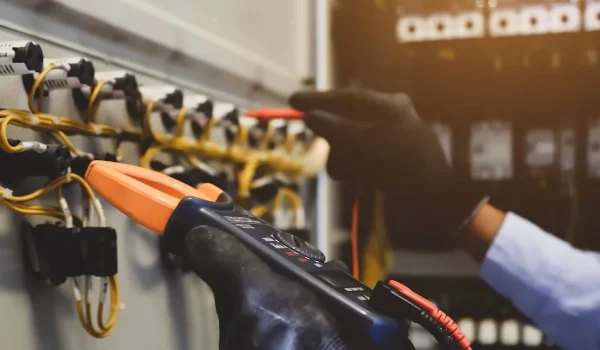Voltage Regulation Test

Why is Voltage Regulation Important?
➤ Prevents Voltage Fluctuations – Ensures a steady power supply, avoiding surges and dips.
➤ Protects Sensitive Equipment – Prevents damage to motors, transformers, and electronics.
➤ Enhances System Reliability – Reduces unplanned downtime and power disruptions.
➤ Improves Energy Efficiency – Maintains optimal voltage levels, reducing energy wastage.
➤ Ensures Compliance with Electrical Standards – Meets regulatory voltage stability requirements.
What Does the Voltage Regulation Include?
➤ Measurement of Voltage Drop – Analyzing variations in voltage levels under different load conditions.
➤ Load Impact Assessment – Evaluating how connected loads affect voltage stability.
➤ Identification of Overvoltage & Undervoltage Issues – Detecting deviations from standard voltage levels.
➤ Recommendations for Voltage Stabilization – Suggesting corrective actions such as voltage regulators, transformers, or capacitor banks.
Ensure Stable & Reliable Power for Your Facility!
At Bigeta Energy Solutions, our Voltage Regulation Test as part of the Electrical Safety Audithelps businesses identify voltage issues, enhance equipment performance, and ensure a safe electrical environment.
